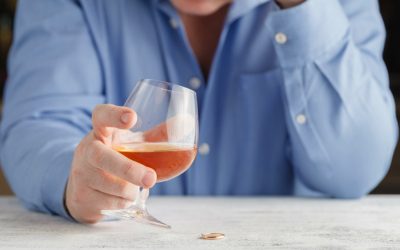- 19 de fevereiro de 2025
- Posted by: B@dyfit@admin
- Category: Sober living
Alcohol tends to lower inhibitions and impair judgment, while drugs such as marijuana may alter your sense of time and sensory perception. When mixed, the user might experience extreme euphoria, significant impairment in judgment, and a disconnection from reality which can lead to dangerous behaviors. Recognizing your limits reduces the risk of alcohol-related accidents or regrets. Enjoy social gatherings responsibly, and remember Sober living home that moderation is essential for a positive experience. Knowing the difference between being drunk vs tipsy is key to safe drinking.
Reasons Why You Feel Drunk Without Drinking
- Of course, if one is in the phase of being actually ‘drunk,’ so many things can happen, whether planned, unplanned, intended, or unintended.
- Your brain is working harder to process information, but the signals are getting crossed or slowed down.
- Harlequin is a popular strain for those seeking low THC levels combined with a higher CBD content.
This post takes a look at the science of alcohol and how it affects our senses and emotions. You’ll learn about the different stages of drunkenness and what they feel like, as well as some tips on how to avoid getting drunk in the first place. Alcohol affects the brain and every part of the body on a cellular level.
Tracking your drinks can also help you stay aware of your consumption. Keeping track of your drinks can be incredibly helpful in understanding your drinking patterns. It helps you see how much you’re actually drinking over time, which can be eye-opening. Many people underestimate their alcohol intake, so tracking provides a clear and objective picture. This awareness can be the first step toward making more conscious choices about your drinking.
In terms of alcohol tolerance, it is the ability to endure the effects of ethanol in the body without losing consciousness or control of your own body and mental faculties. A hangover typically feels like a combination of headache, nausea, vomiting, fatigue, increased anxiety, and depression the morning after heavy drinking. It’s caused by dehydration, alcohol’s toxic byproducts, inflammation, and neurotransmitter imbalances as the body what does being tipsy feel like recovers. How quickly someone feels drunk depends on factors like age, sex, body size, metabolism, tolerance, whether they’ve eaten food, and if they’re consuming other drugs. Remember, responsible drinking is about enjoying alcohol in moderation and maintaining a healthy balance. By following these tips, knowing your limits, and seeking support when needed, you can ensure a safer and more enjoyable drinking experience.
Dangers of Getting Drunk

Alcohol has a profound effect on our emotional regulation, turning what might be a minor feeling into a major event. When you drink, you’re essentially tinkering with the control panel of your emotions, and the results can be unpredictable. Understanding why this happens is the first step toward managing those emotional waves and fostering a healthier relationship with alcohol.
Social Context
Physical discomfort often follows, including nausea, headaches, and general malaise. Emotionally, drunkenness can trigger mood swings ranging from excessive happiness to sadness or anger. The drunk state is typically remembered as physically uncomfortable and emotionally volatile compared to the more controlled tipsy experience.
Severe intoxication requires immediate medical attention as it can lead to alcohol poisoning, which can be fatal. Emotionally, individuals may experience mood swings, increased impulsivity, and a decreased ability to control their emotions. Even though studies show that no amount of alcohol is healthy and alcohol use disorders can be deadly, many can enjoy a couple of drinks on occasion.
This might make you feel more assertive in social situations, willing to speak your mind, or even take on challenges you’d normally shy away from. This boost in confidence is one reason some people enjoy the feeling of tipsiness. It’s crucial to ensure this doesn’t cross the line into overconfidence or recklessness. Consider using Reframe’s drink tracker to monitor your consumption and stay aware of your limits. Your body functions will slow so much that you will fall into a coma, putting you at risk of death. It might be possible that you ate something with alcohol without realizing it.
Being around others in a social setting can itself be intoxicating, and alcohol seems to amplify the good feelings. It also provides a signal to others that we are letting our hair down, which does not require an intoxicating dose to see the mood effects, Sayette said. Genesis House is a luxury drug and alcohol treatment center that offers comprehensive support at each stage of recovery. We offer medical detox, inpatient treatment, and outpatient treatment options that are fully customized based on your needs. All our services are evidence-based and designed to achieve the best possible results.

If someone is showing https://dev-mdabddullah.pantheonsite.io/2022/05/13/heroin-addiction-treatment-and-rehab-programs-2/ symptoms of severe intoxication—such as slurred speech, trouble walking, or vomiting—it’s time to intervene and help them stop drinking. At this stage, many people enjoy the social and relaxed feelings alcohol brings. It’s easy to underestimate the effects because they feel mild, but your brain and body are already being affected. When someone comes down from alcohol consumption, typically the next morning, a hangover is often the result.
The Depressive Phase (Excitement Phase): Loss of Control
In the UK, the legal limit for driving under the influence is 35 micrograms per 100ml of breath, which can be identified using a breathalyser. It’s getting late but you are nowhere near ready to stop the party. You do not care if your buddy has got work in the morning or if your sister has to get home to the babysitter — NO! You don’t care if your friend loses his job or if your sister never sees her children again, you’re ordering more shots.
Alcohol enters your bloodstream within minutes of your first sip, affecting your brain and body almost immediately. The extent to which alcohol impacts you depends on your Blood Alcohol Content (BAC), which rises the more you drink. During the depressive phase, also known as the excitement phase, you begin to display signs of uncontrollable emotional highs, loss of coordination and judgment.

